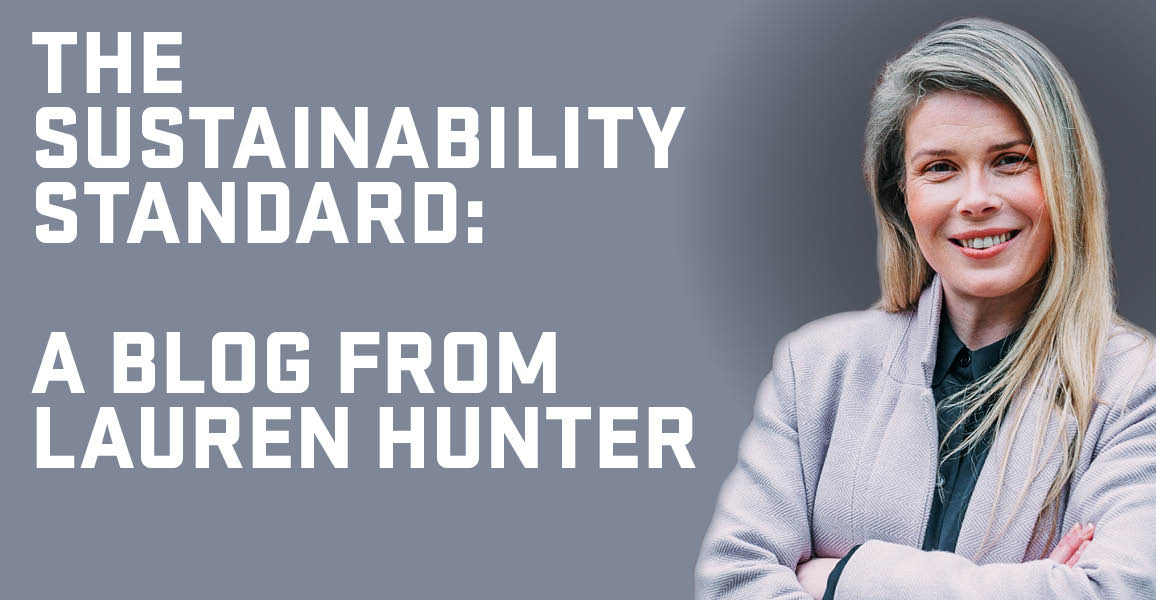
There is a common theme in this industry that companies like to look sustainable, despite not making much effort to be sustainable. Talking it, not walking it. Greenwash and hyperbole – not anything that resembles long-term investment or real action.
Because I’ve become known in the industry as an advocate for how foodservice operators and equipment manufacturers can think and behave more sustainably, I’ve had a significant number of companies asking me to visit their booth at recent industry shows. Sadly, it’s not always because they’re interested in how I can help make their operations more sustainable. It’s often because some brands are more interested in posting a picture of the visit on their social media channels or website. It’s for sustainability clout and green box-ticking, nothing more meaningful.
Why is that? Because making meaningful change is not easy. Change can be disruptive and uncomfortable. “Change is hard at first, messy in the middle and gorgeous at the end,” said the leadership writer Robin Sharma. Change is also, I believe, as good as a rest.
One thing change does not always have to be though, is expensive. My clients are frequently pleasantly surprised at the cost of undertaking an embodied or operational carbon audit. It’s not bank breaking at all, and it’s certainly worth investing in.
This industry is often accused of moving too slowly, and while it’s not quite at the glacial pace that sometimes gets leveled at it, I can’t really argue with the overall criticism. It was extremely adept at pivoting and adapting with great flexibility during the Covid pandemic, for example, but that was because it absolutely had to be. What we are not so great at doing is fixing the roof while the sun is shining and embracing incremental change in the way that many other industries do. The shock of the new can trouble us, but it shouldn’t.
Getting ahead of the curve
I started out in this industry 14 years ago as a web dealer. We were considered the bottom of the barrel back then, but e-commerce was eventually embraced and now there are hundreds of web dealers in this industry. Even when you look at a topic such as mental health, just 10 years ago or so, employees who needed to take time away from the kitchen or office with stress or burnout were accused of being weak or “faking it”. The industry has gone on a journey with that one but thankfully, through the tireless work or organizations such as The Burnt Chef Project, we are far better at understanding the effects that this industry can have on its workforce.
Hybrid working? Again, not a concept embraced nearly as quickly as it was by other sectors. Eventually, reluctantly, we saw the benefits, now it’s just common practice. We are frequently behind the curve. Sometimes we don’t half strike me as having a small village mentality: scared of change, cynical of the new.
So, why is this industry not great at adapting to – or leading – change? One reason is because we wait for legislation to be impressed upon us, rather than seizing the initiative and shaping it ourselves. But legislation doesn’t just come out of nowhere. It is built from the need for change. Governments react to situations when they have to, when really, we should be forcing through legislation far earlier.
We need to stop playing so safe, especially when it comes to sustainability. Yes, change is difficult and challenging. And change sometimes comes with failure. But failing and learning can a powerful tool. Just ask those Silicon Valley billionaires who wear their Chapter 11 badges with pride.
Calm in the chaos of change
Failure, like change, can feel chaotic, and finding a balance and a calm within chaos is super hard, but the way through that is to work together. We all fight in the same pit for limited pockets of money, but in times where change is really needed, we have to find a way to come together. A collaborative mindset – much like what was achieved through The Palace framework – is absolutely the way forward. That’s how we develop. That’s how we change.
There are great opportunities in change. Consultants are a supporting mechanism to a massive industry, but sometimes we need to step back and ask ourselves, ‘Does this situation make sense? Or can we do better?’
There’s a new world ahead of us, and we don’t know what it looks like yet, but we need to try and figure it out quickly. We just need to be a little bit more open and see change as an opportunity not just a challenge.
An open mindset, including from those industry bodies setting agendas on a global level, is exactly what is needed. For a whole host of reasons, there are manufacturers out there that have seen a 20% downturn this year because of changes in the hospitality industry. We can’t just shrug our shoulders and accept that. We need to help them. But we also need to learn from our own mistakes and be upset with the current situation. We cannot be passive onlookers.
Let’s keep asking ‘why?’ To make change and to progress, you must always understand the why. You must be willing to listen and give people room to speak. Change is inevitable. But it really helps if you’re playing a part in driving that change.
If we are all more willing to listen to each other, the industry might be a better place. We might all feel that little bit more secure and a little less alone. And change might just be a lot easier to handle. And gorgeous in the end.
Lauren Hunter
